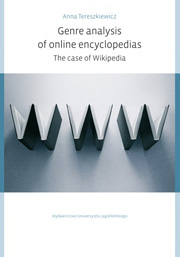1 - Genology as a study
Published online by Cambridge University Press: 05 September 2014
Summary
Schools of genre analysis
Genre research has its origins in the area of literature and rhetorics. For a long time, genre studies were concerned with structures and classes of literary texts. The term “genre” was usually referred to as a categorization according to form and topic (e.g. a tragedy, a comedy, an epic). In rhetoric, genres were determined on the basis of such characteristics as form, subject, situation and audience (Yates and Orlikowski 1992: 300). Today, genology encompasses a vast number of areas indeed, whereas the concept of genre is used in a number of disciplines, e.g. folklore, rhetoric, literature and art.
As Gajda (1993: 247) observes, two main periods of genre study may be outlined, a universalist stadium, ranging from antiquity until the 19th century, and a scientific stadium, from the turn of the 19th and 20th centuries onward. In the first period of genre study in the era of Plato and Aristotle, the main terms were constructed based on general philosophical and logical assumptions. This stage was largely normative in character, as genres were treated as a collection of strict and intransgressible rules defining the topic, composition and style of texts. Texts were analysed with reference to an ideal genre, constituting a model of structure and quality (Gajda ibid).
In the second period, the scope of genre description, its aims and methods gradually changed towards a more descriptive approach, focusing not only on textual regularities, but more importantly on the social and cultural aspects of genre use.
- Type
- Chapter
- Information
- Genre Analysis of Online EncyclopediasThe Case of Wikipedia, pp. 15 - 20Publisher: Jagiellonian University PressPrint publication year: 2010



